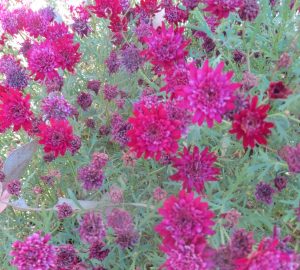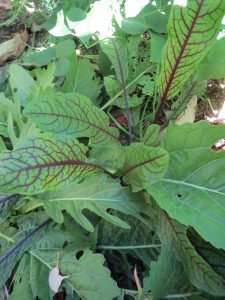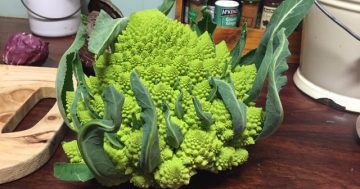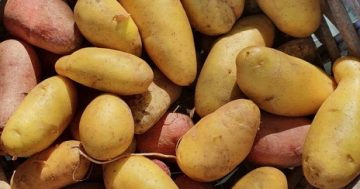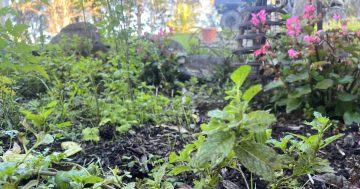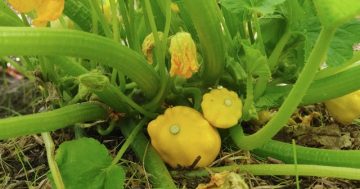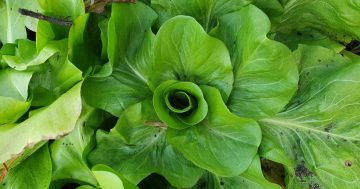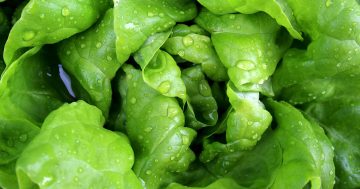The colder months are here and our region really feels it.
Life retreats only planning to stir with the first rays of spring, but don’t you retreat from your vegepatch or orchard, there are things to be done and still food to grow.
First a bit of observance – with a cuppa and sitting in the sun in the middle of the garden to peruse some of the issues that came up last season.
Some thought starters…
Do you need to rearrange the beds? What beds worked well last season and what didn’t? Do you need to put in a green manure crop to reinvigorate a bed where plants didn’t really thrive?
Take the time to really see what went well and what didn’t.
Start to make a list of some of those jobs you’ve been putting off in the garden…
Clean up the old summer beds and compost all that you can. You have been feeding and improving your garden for a while now so it’s good to keep what you’ve grown in the system.
Remember to collect fully grown seedheads from the best plants, dry them out and store in airtight containers.
Fork and aerate beds, reinvigorate with dolomite, potash and your favourite type of fertilizer, mine is my compost with added chicken manure from my girls.
Mulch all the beds again, I use slashings from the farm, rotted bales from the produce store and sometimes grass clippings if they don’t contain seed heads.
Plant out winter crops – brassicas, rocket, parsley, peas, chives, onions, garlic, silverbeet, spinach, coriander, all the root crops and don’t forget the broad beans!
Have you thought about what flowers to plant around your patch?
I have lots of geraniums, nasturtiums, marigolds, chrysanthemums, salvias and daisy family around mine. Someone is guaranteed to be flowering all through the year. The good bugs will thank you and help you control the bad ones.
Keep on top of any pests – aphid, white moth, cabbage moth, snails, and slugs all appear around this time of year before the harsher temperatures make it difficult for them.
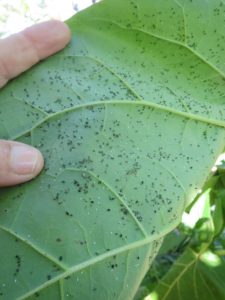
Aphids! A little eco-friendly washing liquid mixed with water in a spray bottle will take care of them, but you’ll need to keep it up
For the ‘slimers’ I put ash around my seedlings to protect them, for aphids and moths a small amount of mild eco-detergent mixed with water in a spray bottle helps. The key is to be consistent, once is usually never enough!
Feed the citrus – cow/chicken manure, some potash, and a little Epsom salt, and mulch them.
Rake up leaves from deciduous trees and compost them, or better still put them into the chicken yard and let them play around in the leaves and turn them into compost for spring. Most deciduous trees are ok, but research your trees toxicity to chickens first if you have any doubts.
Planting more fruit trees?
Bare-rooted stock is now in and autumn is a great time for planting out. Remember to plan where your trees will work best and how you’re going to manage them throughout their (and your) life.
Clean up under all your fruit trees.
If you’re growing stone fruit or any of the pomme (apples, pears, etc) family get some help from the chickens in cleaning up. It is fine to leave the ground bare under the trees for a couple of months.
Start to think about how you’re going to prune for next years crops. Plus how are your tools going? Maybe an afternoon of cleaning and sharpening is in order?
Look for dead or dying branches to remove. Your first prune of the year should be the apricots – June is the usual time for this group. Wait till it’s very cold and all leaves have dropped to prune the rest of your orchard, that’s mainly so you can easily see next year’s fruiting spurs.
If your fruit tree has wooly aphid, scale, or sooty mould then it is usually a sign the tree is not doing so well in its root system, or rot has set into the heart of the tree.
You’ll need to make a decision, whether to save the tree or cull and start again. Often the tree is failing because of an issue within itself – just like us!
Keep up the watering, this time in the afternoon, when it is a little warmer.
A lot to consider, you might need more than one cuppa!
Play, plant and go well my gardening friends.
Words and pictures by Kathleen McCann – permaculturist, artist, good chick and number 1 worker at Luscious Landscapes.



